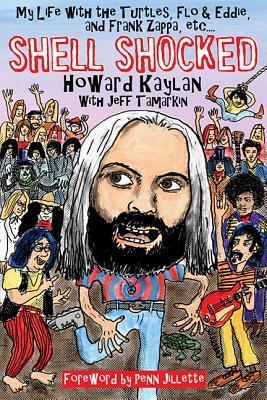What do you think?
Rate this book


312 pages, Paperback
First published March 1, 2013
When “The Puppy Song” played, Nilsson’s eyes filled with tears. “Dreams are only made of wishes and a wish is just a dream you hope will come true.”
“I was a pretty good singer once, wasn’t I?”
“You’re the best there ever was.” I told him, meaning every word. I was tearing up too.
“He took it from me. He stole my voice and I never got it back!”
The “he” that Harry referred to was John Lennon, who famously produced the Pussy Cats album for Nilsson in 1974. Harry spoke of the primal screaming contests that John would coerce him into.
“I can scream louder and longer than you!” and John could. But, sweet, gentle Harry couldn’t do it. He tried. The competition was fierce, and by the time Lennon returned to London, abandoning May Pang and the lost California years, it was too late; the damage had been done. Harry’s vocal cords were abraded beyond repair and the new stuff was scratchy and desperate. Harry cried.
“Once I was a king, Howard. Now look at me. I’m just waiting to die
Tom Jones was an education all by himself. Every day, when the tour bus arrived at our venue, there were hundreds of waiting, screaming teenage girls, and Tom taunted them mercilessly from behind the safety of his window. He actually pulled out his legendary-for-good-reason schlong, which he had nicknamed Wendell, and waved it at the befuddled girls, who hooted, hollered, and pushed their friends aside to get a look at the one-eyed monster.
“Ooh, you’d like to meet Wendell, wouldn’t you, ladies? Arrrgh, here he comes, girls.” Tom was very advanced.
Years later, brilliant voice actor Billy West would say, “There’s one show business.” I didn’t have those words for it then, but Frank Zappa, Howard Kaylan, and Mark Volman taught me that there was only one showbiz that night in Boston. These lightweights were onstage with the heavyweights and they were doing the best show I would ever see. Their voices were beautiful. The music was hard, and they were still having fun. Some of the jokes were very serious and over my head (what the fuck was going on singing in German about a sofa?). Some of the jokes were just stupid jock cock jokes that I would sneer at in my school. It was all mixed together. It was a show that was smart and stupid, heavy and light, beautiful and more beautiful.
They were doing a show with cheesy jokes, and it was also art. How could that be? It wasn’t stuffy—it was funny, entertaining, showbiz, vaudeville, and fun, and it still had content. Those turtlefucking Mothers with those motherfucking Turtles.
They did “Happy Together” in this Mothers show, and it was a really good song. And the music was more sophisticated than I had ever thought. Those perfect AM voices doing art. I loved hearing something I knew from the radio in a smarty-pants show. Were they making fun of it? Yes. Were they also playing it for real? Yes. Were they playing it because it was fun? Yes. My view of showbiz and art came together. It was that moment, during that show in Boston, that the line between showbiz and art was erased for me. If Turtles could be Mothers, maybe a hick juggler could speak his heart in a magic show.
I drove back to Greenfield and now did my best to look as much like the Phlorescent Leech as I could. When people said, “You look like that guy,” I said, “Yeah, the guy in the Turtles, he’s also in the Mothers now.” I was proud of being in showbiz and I was proud of how I looked, and I knew what I wanted to do in life. That’s a lot to learn from a couple of Turtles.